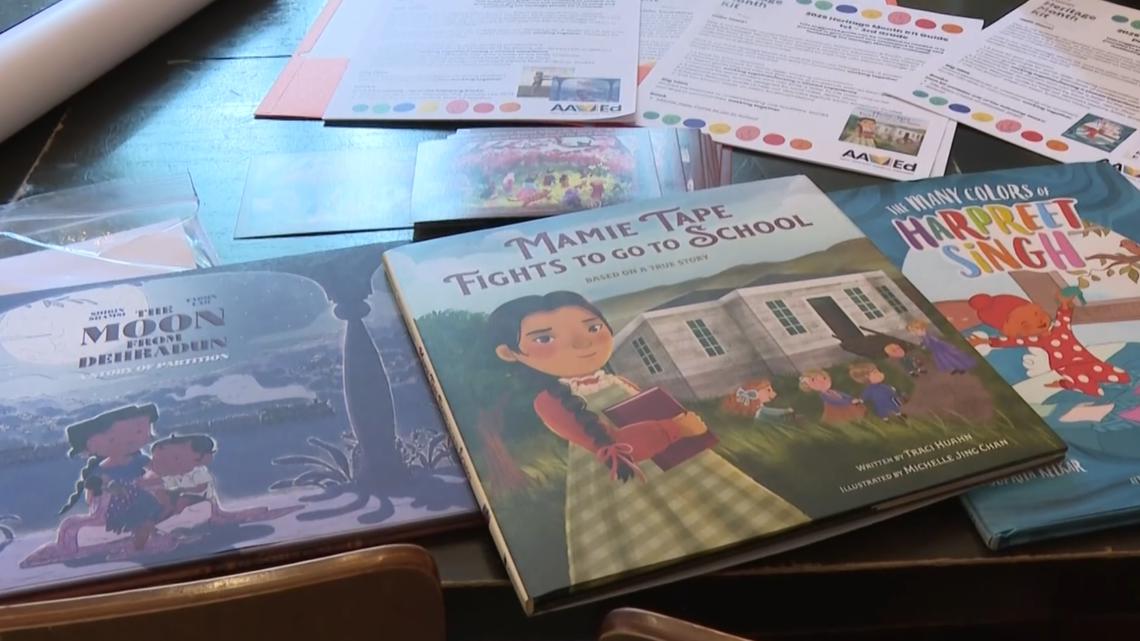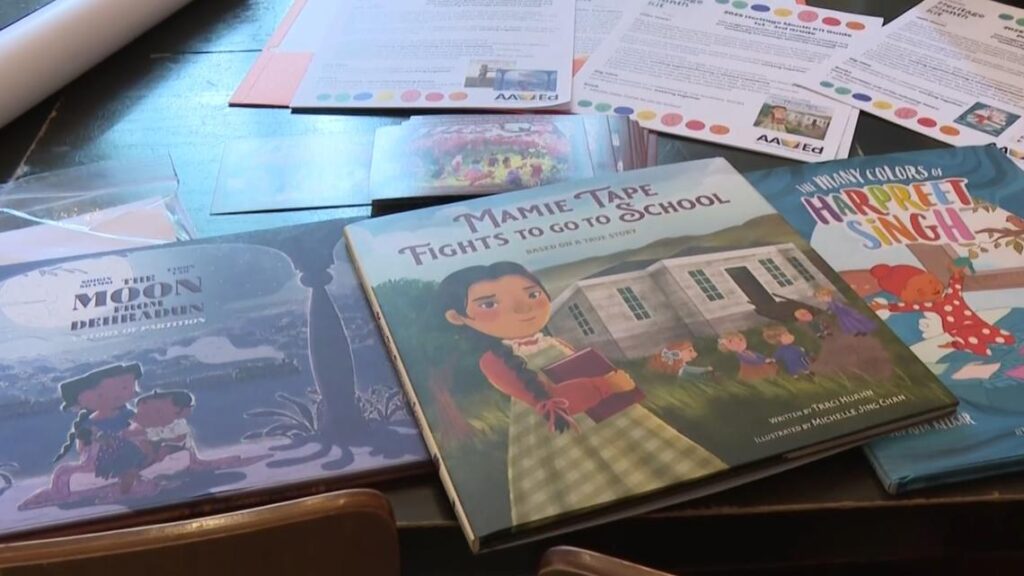Asian American Voices for Education brings free history kits to Georgia classrooms.
DEKALB COUNTY, Ga. — A conversation with her son inspired Weonhee Shin to begin addressing the lack of Asian American representation in Georgia classrooms.
“He said, ‘I don’t see anyone who looks like me,’” Shin recalled. “And I realized then, it hadn’t even occurred to me to expect that.”
That moment led Shin, a Decatur parent and former educator, to co-found Asian American Voices for Education (AAVEd) — a nonprofit organization working to bring Asian American history into K–12 classrooms through ready-to-use curriculum kits.
The learning kits, which include books, lesson plans, pamphlets and artwork, are now being used by more than 15,000 students and 800 educators across 30 school districts in Georgia, according to the organization. The goal, Shin said, is to help students see themselves in the curriculum, and to understand how Asian American history connects to broader themes in U.S. history.


“It has become more than just representation,” she said. “It’s using Asian American history as an entry point to learn comprehensive history. There’s a reason for everything, and students want to understand how events are connected.”
The kits address key moments such as the role of Chinese railroad workers, the Chinese Exclusion Act and the incarceration of Japanese Americans during World War II — often the only times Asian Americans are mentioned in Georgia’s current curriculum, Shin said.
Since launching in 2022, AAVEd has collaborated with local educators and parents to distribute over 400 kits. All materials are aligned with Georgia curriculum standards and available for free online.
One educator using the kits is Tajie Tate Perez, a teacher in Decatur and mother of two biracial children. She said the materials help students of all backgrounds understand the historical ties between Asian, Black and Latino communities.
“These are great resources, especially for teachers who haven’t delved deeply into the solidarity between these communities,” Perez said. “They help build a sense of identity and confidence in students.”
Perez said the kits are particularly meaningful for students who previously felt isolated.
“That fear — to say, ‘Why am I the only Asian student in the group?’ — is not there anymore,” she said. “Now they feel open enough to ask questions because we’ve read books and used lessons that build that confidence.”
Although the program has grown quickly, both Shin and Perez hope that one day it won’t be needed.
“Our hope is that in 50 years, AAVEd doesn’t exist,” Shin said. “Because by then, we’ll have normalized these stories in every classroom.”
Free access to AAVEd’s resources and more information about the kits can be found here.


